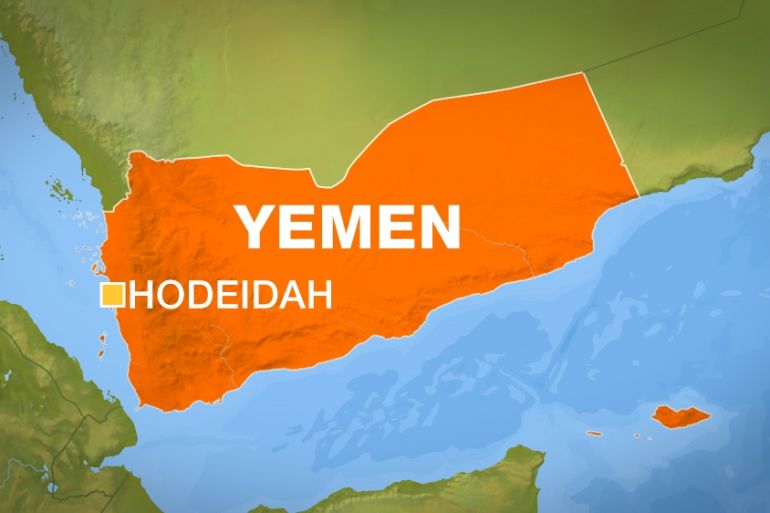Yemen wedding hall blast kills five women: Officials
Attack comes two days after at least 26 people were killed in blasts that rocked the airport in southern city of Aden.

Five women have been killed in war-torn Yemen after a projectile exploded at a wedding held on New Year’s Day in the Red Sea port city of Hodeidah, officials told the AFP news agency.
The government and Houthi rebel forces blamed each other for the Friday night bombing of the hall near Hodeidah’s airport, a front line between the warring sides on the edge of the Houthi-held town.
Keep reading
list of 4 itemsAre hopes of ending Yemen’s civil war slipping away?
Why are millions starving in Yemen? | Start Here
Pope shares worries for Yemen war victims in New Year message
The incident came just two days after at least 26 people were killed in blasts that rocked the airport of the southern city of Aden as government ministers got off a plane.
Two International Committee of the Red Cross staff members were also killed in the attack and one was missing, ICRC said in a statement.
No group has claimed responsibility for Wednesday’s attack. The Houthis, who are aligned with Iran, denied they were behind it.
The Saudi-led coalition later said it had shot down an explosive-laden Houthi drone that was targeting the presidential palace.
General Sadek Douid, the government representative in a United Nations-sponsored joint commission overseeing a truce, condemned the Hodeidah blast, which also left seven wounded, as “an odious crime committed by the Houthis against civilians”.
Hodeidah’s Houthi-appointed governor, Mohammed Ayache, said on Al Masirah television, which is run by the Shia Muslim rebels, that “the forces of aggression never hesitate to blame others for their crimes”.
Saudi-backed government forces launched an offensive in June 2018 to retake Hodeidah, the main entry point for humanitarian aid to poverty-stricken Yemen. But a ceasefire has been partially observed since December of the same year.
Last month, the Saudi-led coalition announced a new power-sharing cabinet after more than a year of intense Saudi mediation between the government of President Abd-Rabbu Mansour Hadi with southern separatists (Southern Transitional Council or STC), who are backed by the UAE.
The two groups are the main Yemeni factions in a southern-based, Saudi-backed alliance fighting the Houthis who control the north, including the capital, Sanaa.
The STC, which seeks independence for south Yemen, declared self-rule in Aden in April, triggering clashes and complicating United Nations efforts to forge a permanent ceasefire in the overall conflict.